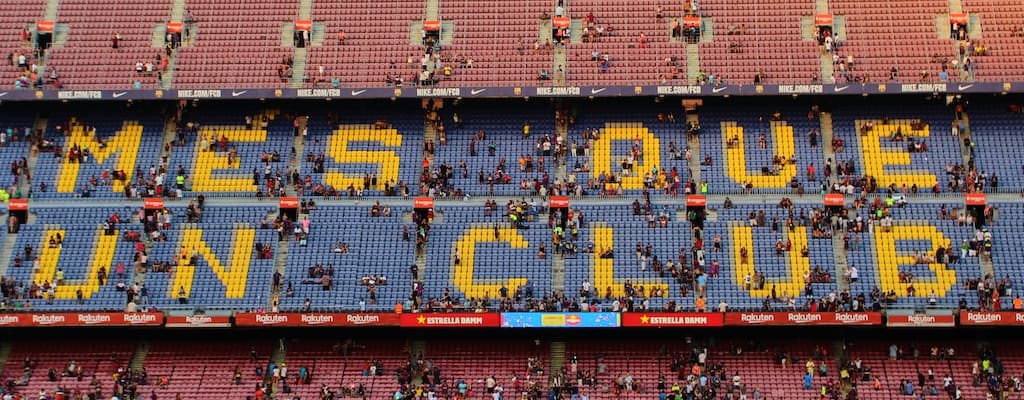throw good money after bad: Idiom Meaning and Origin
What does ‘throw good money after bad’ mean?
The idiom "throw good money after bad" means to continue to invest or spend money on something that is not going to be successful or profitable, despite already having lost a significant amount of money.

Idiom Explorer
The idiom "throw the baby out with the bathwater" means to discard something valuable or useful along with things that are not. It warns against the risk of making hasty or indiscriminate decisions that result in unnecessary loss.
The idiom "throw one's hat over the wall" means to commit oneself to a course of action, often into a difficult or challenging situation, in order to show determination and resolve.
The idiom "throw one's cap over the windmill" means to take a bold risk or pursue an impractical or impossible goal with determination and enthusiasm.
The idiom "throw money away" means to spend money on something that is essentially wasteful or unnecessary, resulting in a loss of money or resources.
This phrase suggests a careless or frivolous attitude towards money, implying that the person is not concerned about the value or usefulness of what they are spending their money on.
The idiom "throw in the towel" means to give up or surrender in a difficult or challenging situation.
The idiom "throw caution to the wind" means to act without considering the potential risks or consequences.
The idiom "throw away" means to get rid of or discard something without considering its value or potential usefulness.
In the idiom "throw a sprat to catch a mackerel," the phrase suggests making a small sacrifice or investment in order to gain a larger benefit in return.
The idiom "throw aside" means to disregard or ignore something or someone, usually in a careless or dismissive manner.
The Money Pit
The idiom "throw good money after bad" is a common phrase used in English-speaking countries. The phrase is believed to have originated in the world of gambling, specifically in poker. In poker, players often continue to bet money on a hand that has a low chance of winning, hoping to recover their initial investment. This concept of throwing good money, or more money, after bad has been extrapolated to various situations in life, symbolizing a futile attempt to salvage or improve a situation that is already doomed or unproductive.
When using this idiom, the word "throw" is metaphorical and signifies the act of spending or investing money. The adjective "good" emphasizes the quality or value of the money being spent, suggesting that the money being wasted is not insignificant or of little worth. The phrase "after bad" denotes that the money is being spent in a situation that is already unproductive or unsalvageable.
By examining the individual words that make up the idiom, we can gather a deeper understanding of its meaning. The word "throw" in this context implies impulsivity or thoughtlessness, emphasizing the act of spending money without careful deliberation or consideration of the potential outcome. "Good," as mentioned earlier, emphasizes the value or quality of the money being spent, implying that this money is worth preserving or using wisely. Finally, the word "bad" indicates the unfavorable or unproductive nature of the situation or investment where the money is being spent.
This idiom is often used to caution against making further investments or spending more money on a failed project or endeavor. It suggests that continuing to invest in something that is already unsuccessful or unprofitable will only lead to further losses or wasted resources. The idiom serves as a reminder to evaluate the feasibility and potential for success before committing additional resources.
It is interesting to note that this idiom has become widely recognized and is frequently used in both formal and informal contexts. Its usage extends beyond the realm of financial investments and can be applied to various situations in life, such as relationships, business ventures, or personal pursuits. Regardless of the specific situation, the idiom conveys a clear message of prudence, urging individuals to consider cutting their losses rather than pursuing a futile endeavor.
The idiom "throw good money after bad" is related to several other idioms. One related idiom is "throw money away". This idiom also emphasizes the act of spending money without careful consideration or thought. However, "throw money away" does not necessarily imply that the money being spent is of high value. It simply suggests that the money is being wasted without any tangible benefit or return.
Another related idiom is "go for broke". This idiom conveys a sense of risky or reckless behavior regarding financial investments or endeavors. It suggests that individuals are willing to risk everything, including their financial stability or well-being, in the hopes of achieving a significant gain or success.
Similarly, the idiom "throw the baby out with the bathwater" is also connected to "throw good money after bad". "Throw the baby out with the bathwater" refers to the act of discarding something valuable or important along with something undesirable or unnecessary. This idiom implies that in the process of getting rid of something unwanted, individuals may unintentionally discard something valuable or beneficial.
The idiom "money pit" is another phrase that shares a similarity with "throw good money after bad". "Money pit" refers to a situation, project, or investment that consistently requires additional financial resources without providing any noticeable return or improvement. This idiom describes an endeavor that continually drains resources without showing any signs of progress or success.
Lastly, the idiom "piss money up the wall" is also related to "throw good money after bad". "Piss money up the wall" is a colloquial expression that emphasizes the wasteful and frivolous nature of spending money without any significant or tangible benefit. This idiom conveys a sense of frustration or disappointment regarding the act of wasting money.
The idiom "throw good money after bad" is a powerful phrase that warns against the act of spending or investing more resources into a situation that is already unproductive or unsuccessful. It serves as a reminder to carefully evaluate the feasibility and potential for success before committing further resources. Through the metaphorical use of the words "throw," "good," and "bad," the idiom conveys a sense of impulsivity, the value of the money being spent, and the unproductive nature of the situation. Its widespread usage reflects its relevance and applicability to various aspects of life, making it a valuable reminder of the importance of strategically allocating resources for maximum efficiency and success.
Example usage
Examples of how the idiom "throw good money after bad" can be used in a sentence:
- She realized she was just throwing good money after bad when she kept hiring new employees, but the business was still declining.
- The politician's campaign was already in shambles, yet he decided to spend even more on advertising, throwing good money after bad.
- After constantly repairing his old car, John finally accepted that he was throwing good money after bad and decided to buy a new one.
The idiom "throw good money after bad" is used to describe the act of continuing to invest or spend money on something that is already a lost cause or will not bring any positive outcomes. It implies wasting more money on a situation or investment that is unlikely to improve or yield a return.
More "Finance" idioms



